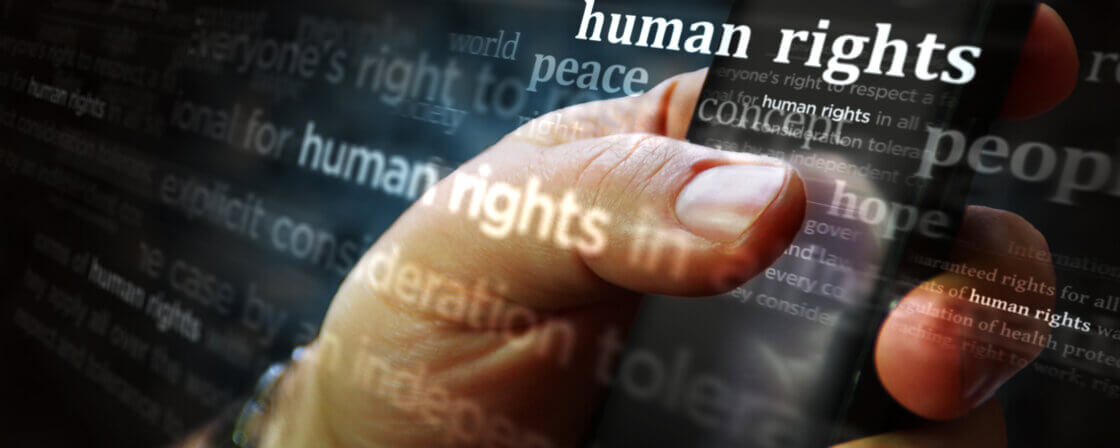Constitutional law has evolved over the centuries, its roots going back deep into history. The inhabitants of each state have gradually discovered or, if you like, determined their own rules, from prehistoric tribal orders to modern constitutions as we know them today. Each state thus has its own specific constitutional traditions. One thing we all have in common, however, is that we consider the Constitution to be the supreme law. The constitution determines how the state should function, sets its values and defines the rights of its citizens.
The Constitution functions as a kind of manual
The Constitution of the Czech Republic contains the basic rules that govern the functioning of our entire society. In it we can find who has the main say, how general norms, i.e. mainly laws, can be adopted or how our civil rights are protected.
Constitutions take many different forms. Most states, of course, have a constitution with a written form, meaning that you would find all the rules in one or more documents in the official collection. This is the case, for example, in the Czech Republic or the USA. The UK, on the other hand, has an unwritten constitution, meaning that you would have to find the constitutional rules of that country scattered in various laws, customs and possibly court decisions.
Can the constitution be changed?
Yes, the constitution is not immutable. As our society evolves over time, the constitution itself needs to respond to these changes. The process of constitutional change is challenging in various ways. For example, the British constitution is, on the face of it, quite flexible, making changes is seemingly quite straightforward, and often all it takes is an ordinary law. In reality, however, it is not easy to change custom and tradition. By contrast, the US is very rigid in its approach to the constitution, even from a procedural point of view, and any change is very difficult and requires a complex process and broad consensus across the federation.
What, you ask, is it that specifically leads to the need to change something? Constitutional reforms are motivated by a variety of factors, but most often it is that a new situation arises in society that needs to be addressed. Specifically, this relates, for example, to the fact that as technologies such as artificial intelligence have entered our lives and much of the world has moved online, there is a need to ensure, for example, that digital rights are protected. Or is there not? The next few years will answer that.
Are you solving a similar problem?
Have your rights and freedoms been violated?
Constitutional law is supposed to protect our basic human rights and freedom. If someone has violated your right, don’t be afraid to ask for help. Every citizen has the right to a fair trial and we will guide you through it, whether you need to appeal, sue someone, or just want advice.
I'm interested in more information
- When you order, you know what you will get and how much it will cost.
- We handle everything online or in person at one of our 6 offices.
- We handle 8 out of 10 requests within 2 working days.
- We have specialists for every field of law.
On what principles does constitutional law work?
The rule of law
The rule of law means that everyone, including government officials, must obey the law. No individual is above the law, and each of us also has the right to a fair trial. Because of the rule of law, no one can abuse power and we are all protected as citizens from arbitrary interference by another person in our rights.
Separation of powers
The power of the Czech state is divided into three main components according to the most frequently cited breakdown – the legislative, the executive and the judiciary or the legislative, executive and judicial power. Thanks to this division, the former politicians ensured that none of the above-mentioned branches assumed too much power over the others, while at the same time ensuring their mutual control. Thus, for example, Parliament passes laws, the government executes them and the courts ensure that these laws are in line with the constitution. In very simplistic terms.
Sovereignty of the people
The principle of popular sovereignty emphasises that all power in a state comes from its people. Citizens have the right to decide who will govern. They do so through free elections. The sovereignty of the people thus forms the cornerstone of democracy. The problem can arise if we are to ask the deeper question, who then is the population? Or is it the people or the nation?
The protection of human rights and freedoms
The Constitution of the Czech Republic contains an inventory of fundamental rights which it guarantees to all individuals. These include, for example, the right to the free expression of one’s opinion, the right to a fair trial and the right to protection of privacy. One of the main tasks of constitutional law is to protect these human rights and freedoms. They can often be invoked not only by citizens, but also by foreigners and legal persons.
The organs of state power in constitutional law or who does what
Legislature or legislative power
The term legislature refers to the legislative power represented by the parliament or other legislative body, which is responsible for enacting laws. The legislature plays a key role in a democratic system because it creates the rules by which everyone is governed.
The executive or executive branch
The executive branch of government is responsible for the exercise of power. The executive branch includes the president, the prime minister and their cabinet. This branch manages the day-to-day functioning of the state. It is also responsible for ensuring that the laws passed are actually implemented.
The judiciary or the judicial branch
The judiciary, and also the Constitutional Court, has the task of interpreting laws and applying them in practice. If there is any doubt or dispute that a particular law or government action is inconsistent with the Constitution of the Czech Republic and violates it at any point, it is the job of the Judiciary to resolve the inconsistency and order steps to correct it.
Tip for article
Tip: Are you interested in the world of justice and would you like to become a judge? Or at least as a judge to look behind the curtain of criminal proceedings and participate in decision-making? In our articles, you will learn how to become a judge or what the role of a presiding judge or a judge of the people entails.
What does a constitutional crisis look like?
Even in developed and sovereign states, conflict between state authorities or other branches of power can be so serious that it cannot be resolved simply by standard means. If you want a concrete example, imagine, for example, that the Constitutional Court decides on a resolution, but the president or parliament ignores that resolution.
In such situations, it can be very difficult to find a solution that does not further violate the Constitution, but at the same time preserves the stability of the state. The decisions of the various organs of power are therefore very crucial, as they significantly influence the future direction of the country.
Inspiration in resolving various conflicts can come from other countries, for example. Constitutional law is not an isolated phenomenon. Although each country has its own specific constitutional traditions, many principles are universal and apply across the world, as they can be found in the constitutions of most countries. Moreover, individual constitutions are strongly influenced by international law and conventions such as the European Convention on Human Rights.
Tip for article
Hint: There have been and are a number of prominent figures in the field of constitutional law who have influenced the development of this field with their ideas and work. These include John Locke, who is considered the father of the modern concept of separation of powers, and Hans Kelsen, who developed the concept of the constitutional court.
Examples from practice
Justice in the Czech Republic bears a number of examples and court decisions that have significantly influenced the development and application of constitutional law. For example, in 2009, a complaint against the law on early elections to the Chamber of Deputies, which was intended to allow early elections to be held in the autumn of that year, was dealt with. According to the complainant, who gave his name to the case called “Melčák”, the law contradicted the Constitution of the Czech Republic. The Constitutional Court actually agreed with him, albeit for slightly different reasons than he had argued, and the early elections were cancelled and the term of office of the then Chamber of Deputies was extended.
In the same year, the Constitutional Court addressed the question of whether a blanket restriction on the right to vote for people with mental illness was possible. In the end, it ruled that restrictions on the right to vote must always be assessed on an individual basis and cannot be applied to all people with mental illness. He thus protected the right to vote of such persons as a fundamental democratic principle.
A few years later, the case of a Muslim pupil who was criticised for wearing religious symbols to school again swept through the Czech Republic. The Czech courts dealt with this issue in the context of the right to freedom of religion and equal treatment. Based on court decisions, the ban on wearing religious symbols may be unconstitutional in some cases.
When the government passed a law in 2017 banning smoking in restaurants, bars and other public places, opponents filed a constitutional complaint due to restrictions on freedom of establishment and personal liberty. In this case, however, the Constitutional Court ruled that the protection of public health was a public interest overriding personal freedoms.
Summary
Constitutional law is a key element of any legal system. It ensures that the state operates according to clear rules, protects the rights of citizens and prevents abuses of power. Although the Constitution is often seen as fixed and immutable, history shows that it is constantly evolving and adapting to new challenges.




